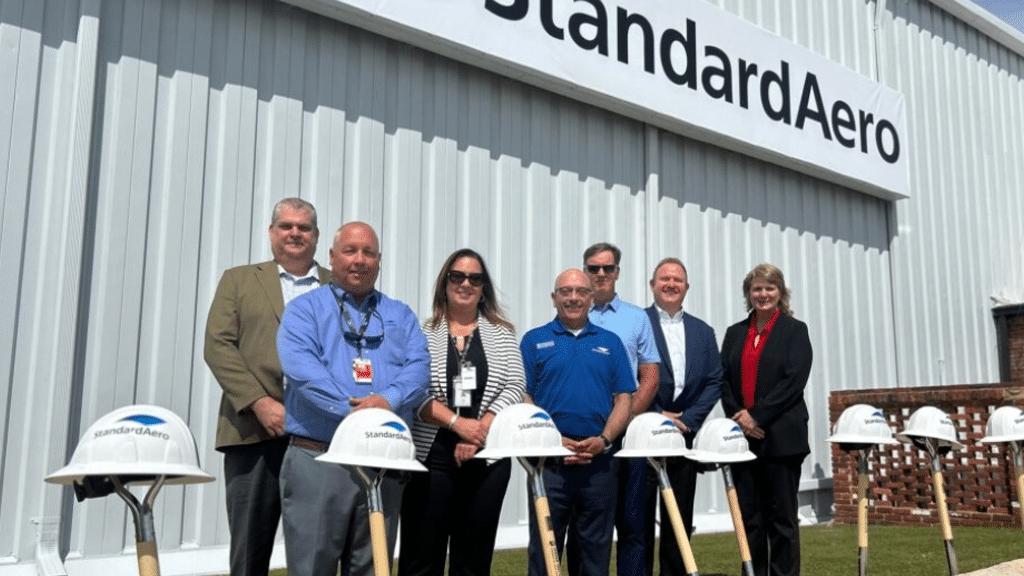Shift5, the observability platform for onboard operational technology (OT), announced Shift5 Manifold 10, the only configurable, passive serial bus interface designed to monitor, capture, and analyze high-volume data from up to 100 serial channels onboard modern aircraft at the edge. A key component of the Shift5 Platform, the bus-agnostic Manifold 10 enables real-time data access, contextual insights, actionable analytics, and alerting, facilitating smarter, faster decision-making so operators and maintainers can meet the rigorous cybersecurity and maintenance demands of modern aircraft.
Manifold 10 is now available for U.S. defense sector aircraft. Shift5 is in active pursuit of filing requests for FAA Supplemental Type Certificates (STC) to make Manifold 10 available for Bombardier and Boeing aircraft, collectively representing thousands of in-service aircraft globally.
“Modern aircraft generate tremendous volumes of data, most of which goes uncollected, meaning its value is never realized. That data holds critical insights about the operating condition of the aircraft that can save time and money, but operators and maintainers are limited to little to no visibility of this invaluable information,” said Egon Rinderer, CTO, Shift5. “With Manifold 10, operators can gain a comprehensive understanding of what happens aboard the aircraft across their entire fleet, enabling airlines to improve fleet availability, safety, and reduce time an aircraft is grounded. Every bit of data across all buses and protocols is now able to be captured, retained and analyzed.”
Manifold 10’s processing and continuous onboard data monitoring capabilities go beyond those of traditional aircraft data capture and analysis solutions:
- Edge Computing: By processing and analyzing data directly onboard, at the edge, Manifold 10 minimizes decision latency, reduces the dependency on ground-based systems, and ensures that operators and maintainers have the most information required to make the most well-informed decisions.
- Data Collection: Equipped with up to 32GB of SDRAM and 8TB of storage, Manifold 10 can process in real-time and store thousands of hours of high-volume data streams.
- Real-Time Monitoring and Analysis: Designed to monitor onboard data continuously to detect anomalies that might otherwise only be detected in post-flight data analysis, Manifold 10 helps operators and maintainers react and respond faster to critical maintenance and cyber alerts, like GPS spoofing or jamming, so they can keep aircraft safer and more secure.
- Compliant and Compatible: Manifold 10’s efficient operation within specified power consumption parameters and certification under RTCA/DO-160G standards ensures reliable and high-performance data processing. Packaged in an ARINC 600 2 MCU form factor, Manifold 10 is compatible with standard aviation systems.
Manifold 10 features Ethernet ports configurable for ARINC 664, 100MB Ethernet, or 1GB Ethernet, alongside modular serial bus interfaces, enabling full-take data collection and monitoring across a diverse array and combination of channels and protocols. Manifold 10 can collect data from up to 100 serial channels, including ARINC 429, ARINC 717, ARINC 664, and Ethernet, and today supports CAN, CAN-FD, CAN-J1939, RS-232, RS-422, ASCB, UARB, RS-485, and MIL-STD 1553 protocols. It can be ordered in varying configurations to meet different operational needs, each with specific part numbers and varying numbers of ARINC and Ethernet connection data ports.
Manifold 10 is available alongside Manifold 4, which serves defense, commercial rail, and maritime customers. The Shift5 Platform uses the data collected and processed by Manifold 4 and 10 for a variety of use cases, supported by distinct modules:
The Shift5 Compliance Module automates compliance efforts for onboard fleet data by helping to ensure that it is processed, managed, and stored according to regulatory requirements and industry best practices. For example, compliance with FAA Advisory Circular 119-1A’s Aircraft Network Security Program (ANSP) requirements.
The Shif5 GPS Integrity Module provides sophisticated, multi-faceted detection and alerting for GPS spoofing attempts, helping to ensure the safety and reliability of navigation.
The Shift5 Predictive Maintenance Module provides data-driven insights needed to predict and schedule maintenance effectively, helping avoid critical failures before they happen so operators and maintainers can ensure the safety and performance of critical transportation and defense fleets.
The Shift5 Cybersecurity Module detects, identifies, and generates alerts for new anomalous activities and known threats in real time, enabling faster response and proactive mitigation of potential cybersecurity risks.
Learn more about Manifold 10 at shift5.io/manifold, or visit us at booth 2023 in the SIDO Made in the USA Partnership Pavilion in Hall 2 of the Farnborough International Airshow 2024 in Farnborough, UK.










